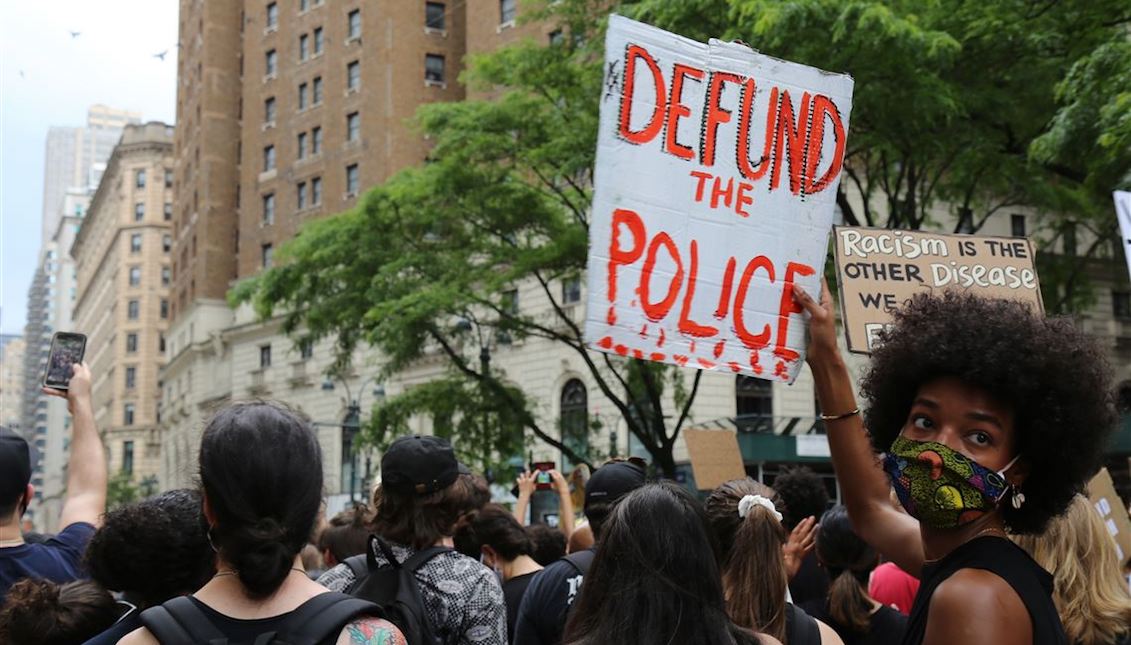
Dismantling the Police System: Is it Possible?
The social revolution triggered by the death of George Floyd has brought to the table the power of the police force in the country. Some are even beginning to…
Can we coexist without being monitored? Is there an alternative to law enforcement? Do we really need a police force to make a society work?
All of these questions have come to the fore after we were able to see live the death of George Floyd, a 47-year-old African-American who succumbed to asphyxiation below the knee of a white police officer in Minneapolis two weeks ago.
The outrage over Floyd's murder not only triggered mass protests and clashes between protesters and police across the country and around the world, but also led to the officers being prosecuted for murder, and, starting this Sunday, the Minneapolis City Council decided by majority vote to disband its police force.
According to the New York Times, nine city council members -a majority with a veto- pledged Sunday to "dismantle the police department," promising to create "a new system of public safety.”
The decision is a step ahead of those who propose police reform as a measure of social transformation, and the Council's promise is one of the first concrete responses to the protesters in the streets.
“It shouldn’t have taken so much death to get us here,” Kandace Montgomery, the director of Black Visions Collective, said from the stage at the rally. “We’re safer without armed, unaccountable patrols supported by the state hunting black people.”
One of the solutions proposed by activists and public officials has been to cut funding to police forces and divert the funds to more needy areas such as education and health.
"The number of police in New York City public schools equals the entire population of the Boston City PD... I want counselors in those schools. Why don't we have 10 counselors, social workers, per school, instead of that allocation?” said Rep. Alexandria Ocasio-Cortéz on Twitter.
It's as straightforward as it sounds: Instead of funding a police department, a sizable chunk of a city's budget is invested in communities, especially marginalized ones where much of the policing occurs,” Scottie Andrew wrote in his column for CNN.
That's why officials in other cities like New York have begun talking about diverting funds to social service agencies, and now Minneapolis will seek a civil rights investigation of police by the Minnesota Department of Human Rights to "amend the police department's use-of-force policy.”
As Yale University sociology Ph.D. candidate Philip McHarris told CNN, "It depends on who you ask.”
RELATED CONTENT
While some are inclined to reallocate some funds but not all, others prefer to dissolve the departments completely.
But the key point is to "dismantle the idea that the police are 'public administrators' meant to protect communities.”
McHarris says that stripping away funds ends the culture of punishment in the criminal justice system. And it is one of the only options local governments have not tried in their attempts to end deaths in police custody.
For international organizations such as A World Without Police, “police violence and exploitation cannot be ended through reforms (better trained, better monitored, more friendly cops) but only with the total abolition of the police as an institution.”
“Historically, police forces were created to protect the property of businesses and the wealthy and enforce white supremacy,” the organization explains on its website. “In cities, they formed to repress the growing numbers of poor people that accompanied the rise of industrial capitalism, while on plantations and in agricultural colonies they formed in response to the threat of slave revolt.”
They add that since the fundamental role of the police is to "defend this unequal system," it is impossible for the police to protect and serve everyone equally.
“Police departments direct their attention toward the racialized poor and away from the wealthy, and leave everyday capitalist exploitation untouched,” they conclude. “As exploitation continues, the rich are made richer, and elites acquire even more power to direct police attention. “Equality under the law” is an empty phrase in this kind of society, much like “freedom of speech” when airtime is bought and sold by corporations.”










LEAVE A COMMENT: